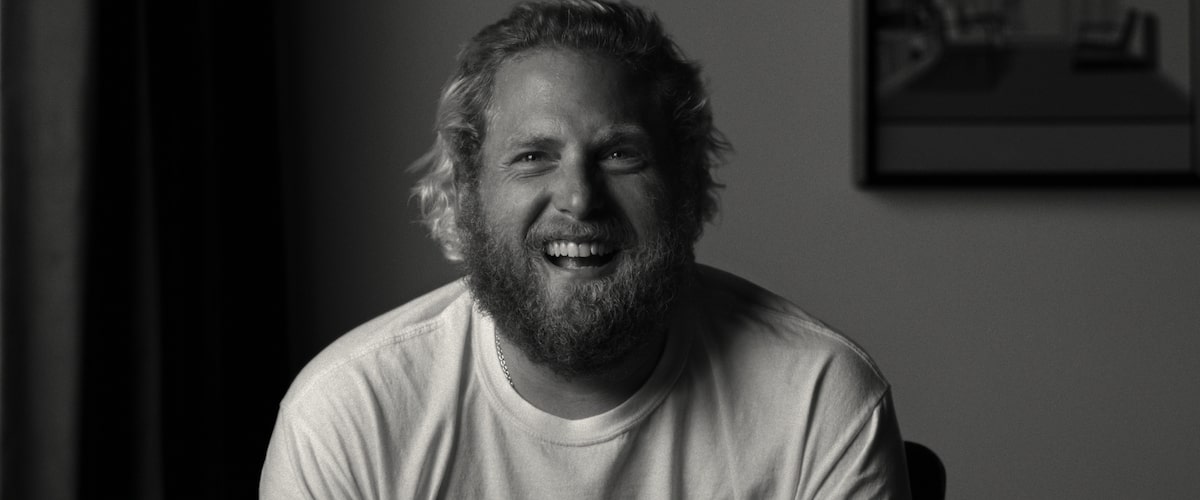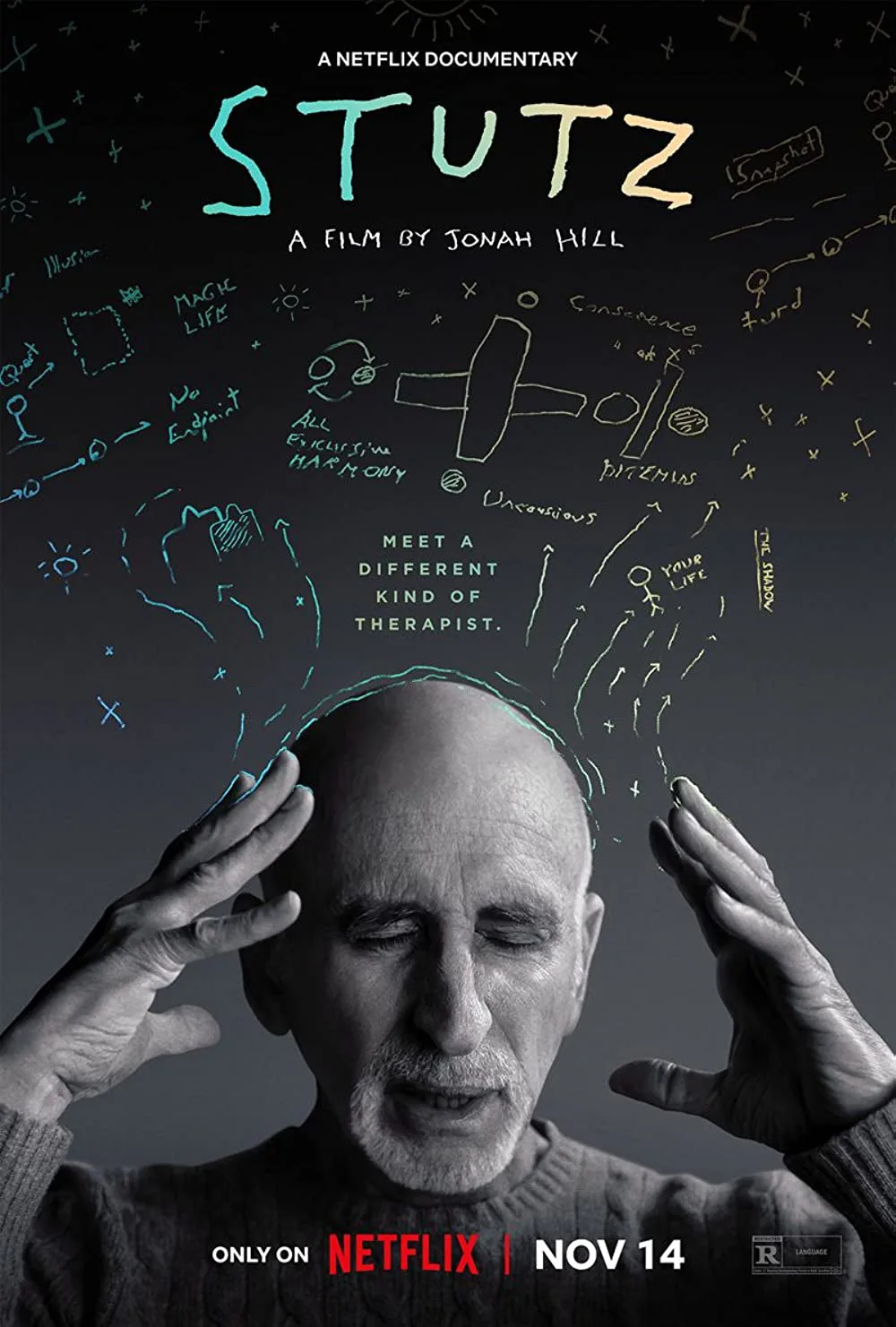Jonah Hill’s gently powerful documentary “Stutz” is a personal project about someone else’s work. It’s personal in that Hill is sharing his therapist, Phil Stutz, with us, and the “tools” that Stutz has concocted and imparted. Using Stutz’s voice as a guide and line animation to recreate the diagrams Stutz draws on notecards for his patients, we learn about “The Shadow,” “Life Force,” “The Snapshot,” “The Grateful Flow,” and more. These are techniques that require close-your-eyes visualizing but are filled with surprising pathways to navigate sadness or an anxiety. They have to be heard from the source and seen with Stutz’s drawings to be best understood. Instead of putting them all into a book, we have Hill’s transformational documentary.
“Stutz” is a sentimental retracing through Hill’s therapy sessions, with an artistic freedom that comes with transparency about its making-of process. In its beginning, “Stutz” is intriguing but stuffy; it’s too much in its head. The editing is distracting, seemingly cutting on Stutz after every sentence, jumping between two similar angles so that you’re aware of the edits. Meanwhile, Hill’s use of Errol Morris’ Interrotron camera has Hill asking rhetorical questions that we obviously know he has asked before, like “So what are the tools?” The film’s premise of Hill being the inquisitor, a flip of the therapist and patient dynamic, starts to feel flat.
But then Hill gets honest, with us, Stutz, and himself. We learn about 25 minutes into the movie that we have been watching a fake set made to look like Stutz’s office, treated with a green screen background, for a chronologically edited shoot that isn’t one session but has taken place over many months. Even Hill’s hair is fake, as a wig hides the much shorter cut underneath that he wants to hide for consistency. The black-and-white breaks to show us everything in bracing color, before returning to the monochrome warmth of Christopher Blauvelt’s cinematography. The editing lets shots breathe for a longer period, and the Interrotron shots that have Hill and Stutz talking to the camera create the natural flow it should. The movie answers the question of “How do you make a documentary about your therapist?” by trusting intuition, and embracing the nuance in the process of creating—some choices and divergences here are more effective than others. But having no self-judgment when drafting is liberating, and it’s particularly poignant how Hill lets that inform his entire approach.
As a formal experiment by an actor whose filmmaking talents are only the latest chapter in his Hollywood story, the documentary offers a touching reflection on Jonah Hill, The Star. Without specifically mentioning movie projects or others’ names, he shares his sense of self during success, and how self-esteem remained elusive. His body weight provided its stress and angst. At one point in “Stutz,” he holds a massive cardboard cutout of his 14-year-old self, which he calls “undesirable to the world.” Throughout, the yodeling voice of Mason Ramsey—yes, the viral, young country singer—is placed inside Emile Mosseri’s atmospheric piano compositions, as if Ramsey were the voice of Hill’s inner child, roaming an expanded headspace.
In briefly formal interview moments, Hill guides us through Stutz’s life, as a boy who grew up in Manhattan and always seemed to attract people who wanted to tell him his problems. Stutz also developed Parkinson’s decades ago, something that weighs on the story and creates more depth in the line drawings. Stutz talks reservedly about his relationships, including a woman he says he has been on-and-off with for 40 years.
In establishing this background, Hill finds new paths to relating to his therapist—they both have brothers who died young, a commonality that emerges because of this project. This examination of his therapy almost seems to bring them closer, adding even more warmth to their casual “I love you” punctuations, in between how they tease each other. With Hill using himself as an example of someone who has found a new way to think of his self-esteem and angst toward past self—and embrace them—Stutz forms in our minds as a master of how to handle these concepts. And yet that’s never confused for Stutz having beaten them. Everyone needs work, always, and Hill has seen the light from a particularly wise man. By capturing and carrying on his teachings like a disciple, Hill is trying to give everyone else a fair shot.
Now playing on Netflix.




















